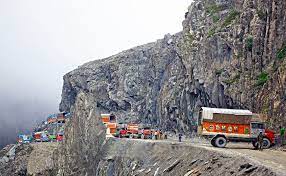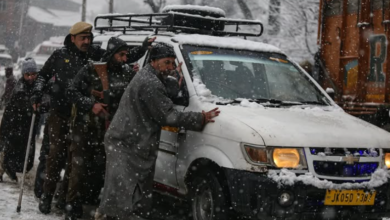
Debayan Roy
The Supreme Court on Tuesday said that it will start hearing the batch of petitions challenging abrogation of Article 370 of the Constitution from August 2 and will proceed to hear the case on a day to day basis except on Mondays and Fridays.
A Constitution bench led by Chief Justice of India (CJI) DY Chandrachud and comprising Justices Sanjay Kishan Kaul, Sanjiv Khanna, BR Gavai and Surya Kant also said that all parties have to file all documents, compilations and written submissions by July 27.
“The hearing of the petitions before the constitution bench shall commence on August 2, 10:30 am and then proceed on day to day basis barring miscellaneous days that is Mondays and Fridays,” the order said.
Advocates Prasanna and Kanu Agrawal shall be the nodal counsel for preparation of common convenience compilations, the Court said.
“Since compilations already prepared earlier, should more additions be made, it has to be made by July 27, 2023. Nodal counsel shall ensure compilations are indexed and paginated. All counsel shall be given the copies,” the bench ordered.
Pertinently, the Court also noted the Centre’s statement that the latest affidavit filed by the government shall not be relied upon to argue on the aspect of Constitutionality.
“Solicitor General Tushar Mehta has submitted that though Centre has filed an additional affidavit setting out central govt view on post notification development..it would have no bearing on the constitutional question and it would not be relied upon,” the order said.
Importantly, two petitioners, Shah Faesal and Shehla Rashid sought permission to withdraw their pleas and the request was allowed by the Court.
This development comes nearly four years after the abrogation of Article 370 of the Constitution, which gave special status to the erstwhile State of Jammu & Kashmir.
Over 20 petitions are pending before the Supreme Court challenging the Central government’s decision to abrogate Article 370 of the Constitution, which resulted in the revocation of Jammu and Kashmir’s special status. The erstwhile State was subsequently bifurcated into two Union Territories.
When the matters were last listed in March 2020, a five-judge Constitution Bench of the Supreme Court decided not to refer the batch of petitions to a seven-judge Constitution Bench, despite some petitioners seeking a reference.
The petitioners argued that two Supreme Court judgments – Prem Nath Kaul v. State of Jammu & Kashmir and Sampat Prakash v. State of Jammu & Kashmir – which were rendered by five-judge benches and dealt with the interpretation of Article 370, were in conflict.
However, the five-judge bench that was hearing the case declined to refer the matter to a larger bench, stating that there was no conflict between the two judgments.
The pleas were also mentioned before a Bench headed by CJI Chandrachud in February this year. The CJI had then said that he would “take a call” on listing the same.
Meanwhile, the Union Home Ministry filed a fresh affidavit on Monday stating that after the abrogation of Article 370, J&K has witnessed unprecedented stability and progress, with stone pelting and school closures becoming a thing of the past.
During the hearing on Tuesday, the petitioners sought time to respond to the fresh affidavit filed by the Central government.
The Supreme Court, however, deprecated the practice of parties filing fresh documents and affidavits.
“Business of additional affidavits, additional compilations.. we had heard it in detail.. There was diversion on whether it should go before a five or seven judge bench. Now I am at a loss to understand why there is a need to file additional documents etc,” said Justice Kaul.
“In same sex matter we kept getting fresh submissions, rejoinder submissions etc. Till last evening also we got 1,000 page compilations. It is unfair to others.. once compilation filed it has to be frozen,” CJI also weighed in.
He also said that the fresh affidavit filed by Centre does not have any bearing on the Constitutional question that the Court would be deciding upon.
“The affidavit of the centre has no bearing on the constitutional question,” the CJI remarked.
“The affidavit has been widely reported in the press,” said Senior Counsel Dushyant Dave on behalf of one of the petitioners.
“We cannot control what is there in the press,” the Court responded.










